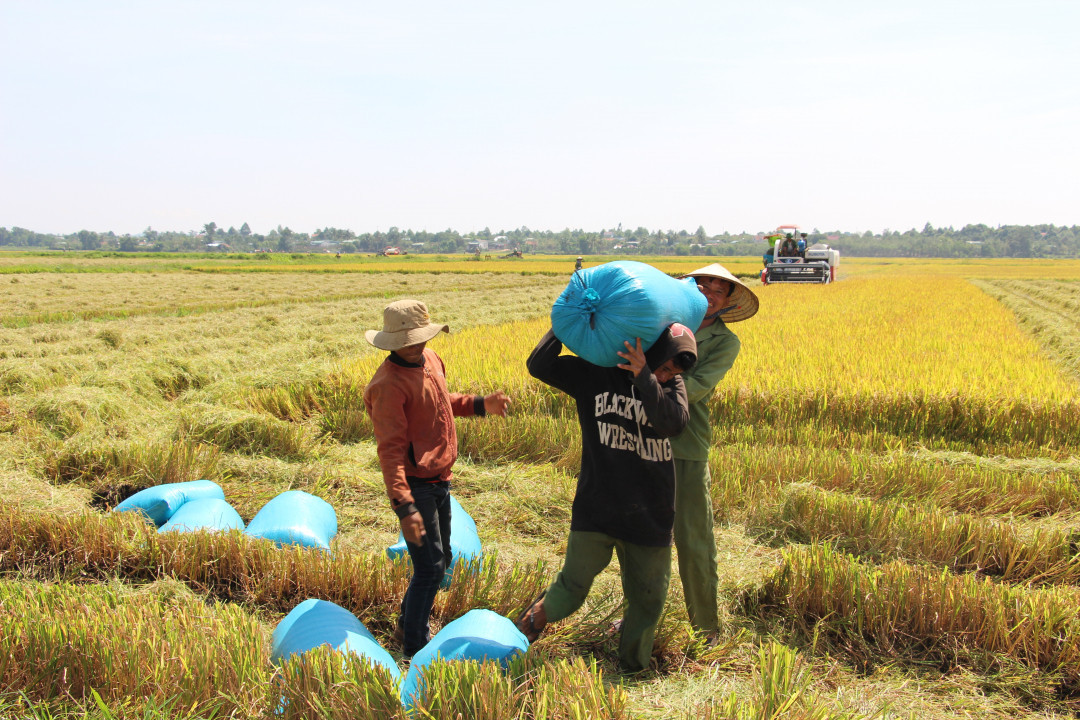
The Dak Lak Department of Agriculture and Rural Development held a conference reviewing the pilot model on green low-emission rice and rice yields in the 2023-2024 winter-spring crop.
At the event, Net Zero Carbon announced the purchase of 17 tons of reduced CO2 from the rice cultivation model pursued by farmers in Binh Hoa commune in Krong Ana district. Every ton of carbon reduced was bought at $20.
However, this is not a carbon credit transaction, because the emission volume reduced is only recognized by Net Zero Carbon and bought by the company as a method of encouraging farmers to cultivate low-emission rice.
This is the first volume of carbon emission reduced from rice in Vietnam successfully sold from the pilot model on growing green low-emission rice and improving rice yields in Dak Lak.
The price is twice as much as the price of carbon credits which the World Bank committed to pay under the framework of the project on developing 1 million hectares of high-quality low-emission specialized rice area in Mekong Delta.
Prior to this, in Binh Hoa commune, farmers began implementing a pilot program on low-emission rice cultivation. Farmers follow a strict cultivation method with alternate wet and dry rice irrigation initiated by IRR (the International Rice Research Institute) and apply the emission reduction confirmation reporting process designed by Net Zero Carbon JSC.
After three months of implementation on a trial basis, the model has brought positive effects. The rice yield is one ton per hectare higher, while the investment cost is 10 percent lower and profit is 20 percent higher compared with the control field.
Notably, the cultivation method helps farmers change the traditional cultivation method, and reduce pollution and rice farmland
Regarding the results in emission reductions, experts found that the new model reduced 17 tons of greenhouse gas emissions (carbon), thus helping protect the environment. The rice produced under the model is ‘cleaner’ and ‘safer’.
Encouraged by the initial achievements, the provincial agriculture department decided to apply the new cultivation method on 500 hectares of rice throughout the province in the 2024-2025 winter-spring crop. This helps Vietnam implement its commitments to reduce emissions in agricultural production.
Nguyen Van Ha, deputy director of the Dak Lak Department of Agriculture and Rural Development, said the successful sale of carbon credits from green rice farming in Binh Hoa commune is an important premise for Dak Lak to follow sustainable rice farming.
Tam An